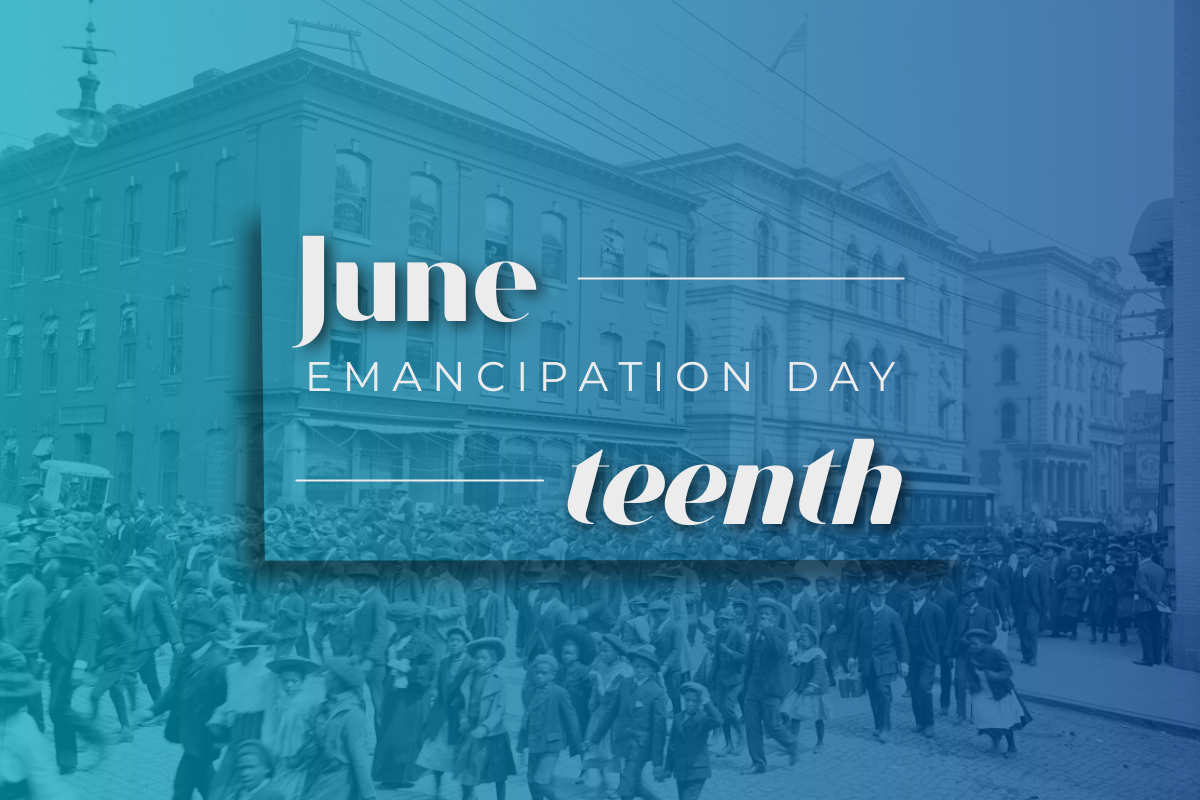Juneteenth as a National Holiday: How Advocates Made It Happen and the Work that Remains
Issues

At the remarkable age of 89, Opal Lee embarked on an extraordinary journey, walking from her hometown of Fort Worth, Texas, to the heart of Washington, DC. Her purpose? To bring attention to the urgent need to establish June 19th as a national holiday. Fondly known as the “grandmother of Juneteenth,” Opal Lee’s tireless crusade for this cause dates back decades. Her unwavering commitment and enduring activism serve as a reminder that the national recognition of Juneteenth, though amplified by the tragic murder of George Floyd in 2020, traces its roots back almost a century.
The Road to Juneteenth
Juneteenth commemorates the day enslaved people in Galveston, Texas, finally received the news of their emancipation. It took a staggering two and a half years after the Emancipation Proclamation was issued in 1863 for the news to reach their ears. Texas was the birthplace of Juneteenth celebrations, with its early beginnings in the 1860s. But it didn’t stop there—Juneteenth spread to neighboring states as those who were once enslaved moved westward, seeking new lives and brighter futures.
The Civil Rights Movement of the 1960s marked a momentous turning point in our nation’s history, bringing renewed national focus on commemorating and acknowledging Black history. In 1968, the Poor People’s Campaign hosted a Solidarity Day Rally in which thousands of Americans celebrated Juneteenth for the first time. Those activists then returned to their home states, bringing Juneteenth with them and, sparking a growing fervor for Juneteenth celebrations nationwide.
Blazing the trail, Texas was the first state to officially declare Juneteenth a holiday in 1980. Representative Al Edwards, often hailed as “Mr. Juneteenth,” advocated for the bill and spearheaded the legislation—and the wave of recognition began to spread. The 1990s witnessed a surge of states joining the movement. Florida, Oklahoma, and Minnesota followed suit and formally acknowledged Juneteenth as a holiday.
In 1994, against the backdrop of pervasive police violence and the infamous beating of Rodney King, a group of ministers in New Orleans responded by founding the Juneteenth Observance Foundation. Their mission was twofold: to address systemic injustices and to unite a network of passionate Juneteenth advocates throughout the United States. It was within this transformative movement that the Juneteenth flag was created, serving as a powerful symbol of unity and resilience.
A series of unprecedented events shaped the path towards broader recognition of Juneteenth. In 2020, Black Lives Matter protests, coupled with the presidential election and the eruption of a global pandemic, primed legislators and the American public to finally recognize Juneteenth.
That same year, Black Lives Matter advocated for the holiday’s recognition following the murders of George Floyd, Breonna Taylor, and Ahmaud Arbery. Opal Lee worked alongside the National Juneteenth Observance Foundation to create a Change.org petition, also seeking official recognition of this holiday. The impact of her call to action was widespread, as an astonishing 1.6 million individuals lent their voices in support of the petition.
On June 17, 2021, a 94-year-old Opal Lee stood steadfastly behind President Biden as he signed the Juneteenth Bill into law. Her tireless advocacy, alongside the relentless efforts of Black Lives Matter, the Juneteenth Observance Foundation, and many others, had finally led to national recognition of Juneteenth. However, her indelible legacy is also a reminder of the tenacity needed for generations of advocacy to come.
How Nonprofits Can Continue Juneteenth Advocacy Efforts
Nonprofits have a powerful role to play in raising awareness about Juneteenth and continuing to advocate for racial justice in a way that honors Juneteenth’s legacy. Despite President Biden’s Juneteenth Bill, only 28 states (including DC) have made Juneteenth an official public holiday. Although lawmakers rallied behind Juneteenth, the same cannot be said for other vital policy changes that would address deep-seated racial inequality.
Nonprofits can thoughtfully celebrate Juneteenth and honor its project in many ways. Here are some suggestions from activists and organizers:
- Lead by example. Honor and celebrate Juneteenth within your own organization. Take actionable steps to build an anti-racist organizational culture.
- Educate yourself and your organization on the history of Juneteenth. Collaborate with museums and educational groups to raise awareness about the history of Juneteenth and why it matters.
- Share events and stories with your community that celebrate Juneteenth and uplift Black voices. Promote and engage in social media campaigns to spread awareness about Juneteenth.
- Advocate for making Juneteenth an official public holiday in your state. Support legislative efforts to address the legacy of slavery and combat racial inequality. Note that this might count as lobbying for nonprofits. However, 501(c)(3) public charities are allowed to lobby within limits (see Public Charities Can Lobby: Guidelines for 501(c)(3) Public Charities).
